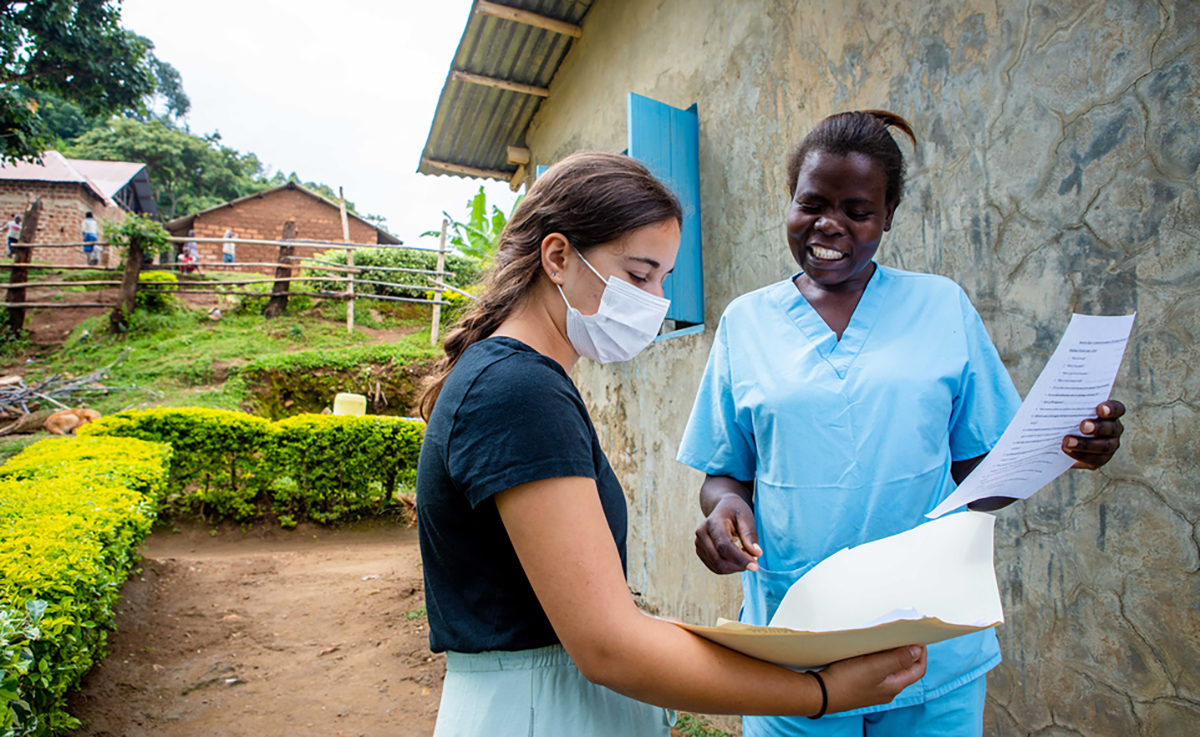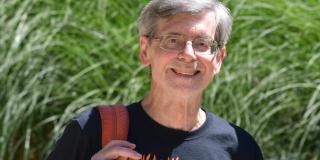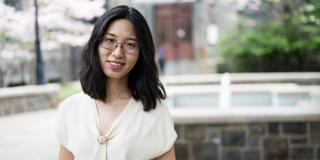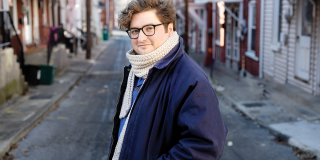Uganda Sustainable Livelihoods Program Offers Life-Changing Experiences
Chae Eun Kim ’22 entered Lehigh without declaring a major, weighing interests in teaching, marketing, and environmental science before majoring in sociology and anthropology. But the key to her eventual career came after participating in the Uganda Sustainable Livelihoods Program, an international undergraduate research and internship trip.
Now Kim, a native of San Jose, Calif., will earn a master’s degree with certification in elementary education when she graduates from Lehigh’s 4:1 master of education program in 2023 – a decision she traces to interning in a pre-primary school for 4- to 6-year-olds in the African nation during summer 2019.
The Uganda program, conducted in partnership with the Pathways Development Initiative (PDI), offers Lehigh students an immersive experience in the country’s rural Bududa region. PDI is a non-governmental organization that works to improve education, health care and economic opportunity in an area challenged by poverty, dangerous landslides, lack of medical care and limited educational resources.
“After I had that internship, it just opened the door for me to explore teaching and consider it more seriously,” says Kim. She has applied to return to Uganda as a Peace Corps teacher.
Program founder Kelly Austin, professor of sociology and associate dean of undergraduate programs in the College of Arts and Sciences, says Kim’s experience is not unique. Many of the more than 100 Lehigh students attending the program since it began in 2013 have had life-changing experiences. “Every student who participates is fundamentally changed by this program. And for many students, it puts them on an entirely new career path,” says Austin, citing program alumni now pursuing careers in public health, medicine, and fundraising for humanitarian organizations – choices related to their Ugandan internships and research.
Austin, who is on PDI’s board of directors, runs the program with Mark Noble, visiting assistant professor of sociology. Students attend for eight weeks, with a shorter four-week option introduced during the pandemic. Unlike typical study abroad programs, students do not earn academic credit. The program cost for the 10 to 14 students who participate annually is fully funded by several grants available in the College of Arts and Sciences and by the Iacocca International Internship program, making it accessible to more students. While most students come from the College of Arts and Sciences, students from the Colleges of business, engineering, and health also have joined.
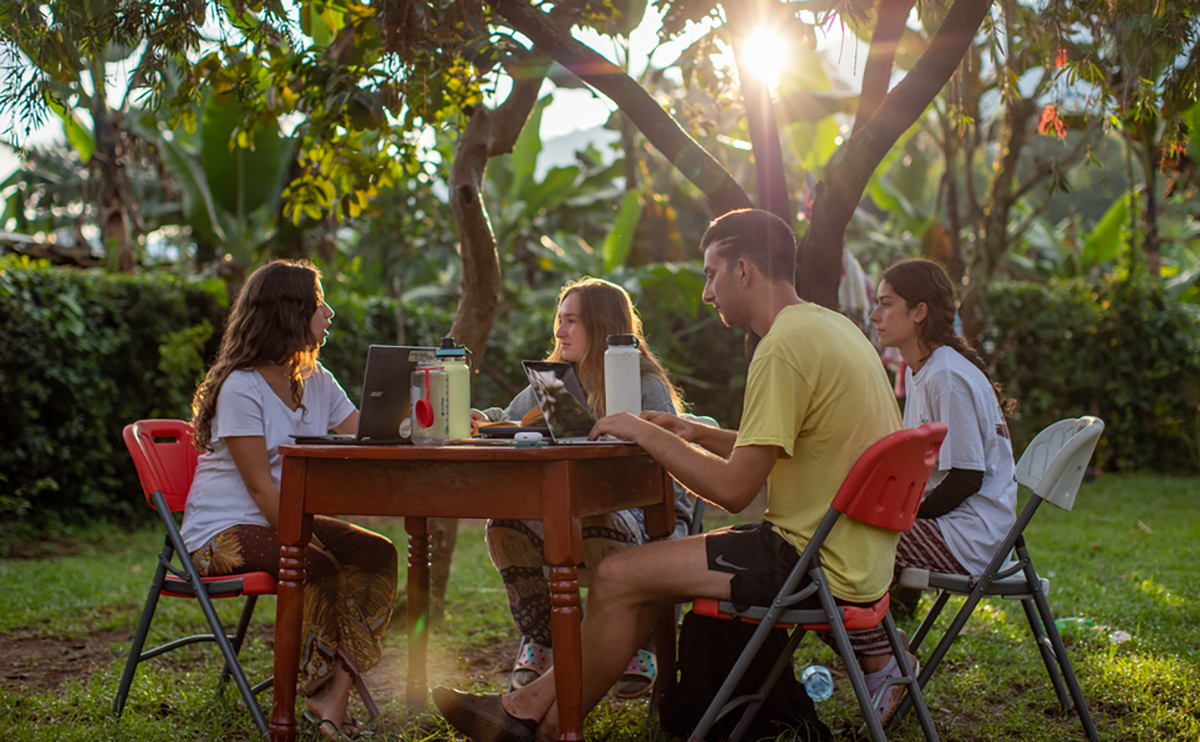
Students live at the Zaale Homestay in Bududa with PDI founders David and Elizabeth Zaale and PDI team members. Limited access to electricity and internet—most power is generated using solar panels— means a summer unplugging from cell phones. Game nights, book clubs and other low-tech pursuits are the norm outside of working hours. Although they have flush toilets, students learn that showers have one temperature: cold.
It can be challenging for students: the accommodations are akin to glorified camping, as I like to say. Kind of like camping with a bedroom,” Austin says.
After the initial adjustment, students focus on the extraordinary beauty of their surroundings. “We got there really late at night because the airport is like five, six hours away from the district,” says Julia Klayman, a political science and global studies major from North Woodmere, N.Y. “So it was not until the next morning that I was able to see where I landed and when I stepped outside, my jaw was on the floor. It was so beautiful. You can see mountains with waterfalls coming down them. There's so much green and it’s so beautiful.”
Weekend trips offer a break from village life. They include the Murchison Falls Safari, where students have the opportunity to see the “big five” of African wildlife
Internships and research are the heart of the program, and no two student experiences are alike. “We really work with the students to develop something that's in their own interests and that will serve them well,” Austin says, adding that the program is flexible, allowing students to pivot and change plans after they arrive in Africa.
Willow Munson '23, a global studies major and premedical student from Emmaus, Pa., says, “You can work with what will benefit you, and further your knowledge and practice in this program.” Munson’s interest in infectious diseases led to a research project examining COVID-19’s impact on available treatments for tuberculosis. She also decided to work in a clinic, shadowing doctors and health-care workers, organizing the medical stock room and helping with patient intake, taking vitals, height, and weight.
In addition to health clinic work, internships also can include working in PDI’s Education Center. Julia Klayman helped students practice English language skills, which are integral to advanced education in Uganda. One day she used a classic children’s game during recess to teach the English names for body parts. “I had the entire school of 60 children watching me play ‘head, shoulders, knees and toes’ the whole time,” Klayman says. “And it was a very memorable experience. It was the first time I really saw them receive what I was teaching.” Her afternoons were spent working with teachers on computer skills, a project that aimed to provide resources that the teachers continue to use after Lehigh students returned to the United States.
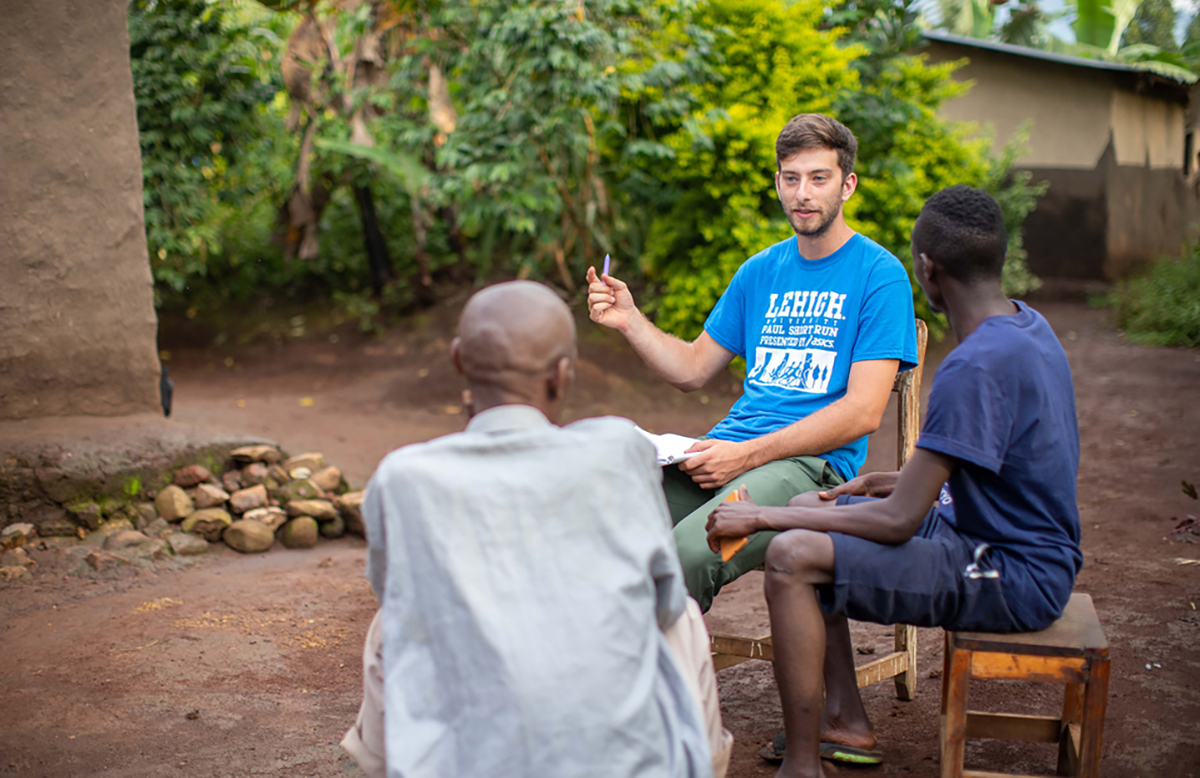
Vinny Polignano ’22 of Phoenixville, Pa., who earned his bachelor’s degree in international relations and health, medicine, and society, chose research reflecting his interest in the international food system. His project studying coffee farming is now the basis for his thesis in Lehigh’s master’s degree program in environmental policy. “Uganda's a huge producer of coffee. It makes up over 80 percent of their export earnings, and I became interested in exploring that,” Polignano explains. While he initially thought his research would focus on coffee farmers’ confidence in their crop, the project changed after he began conducting interviews with the help of an interpreter. “I started with the premise, ‘Do you feel growing coffee is viable?’ which evolved to be a more broad-based examination of farmers’ understanding of market fluctuations, government support and other factors affecting what is the most lucrative crop,” he says.
The long partnership between PDI and Lehigh has allowed trust to develop between students and village residents. Nearly one third of each year’s cohort includes students returning for their second year. Polignano notes, “I think they know we'll come back and that we're interested in them as a community….The longevity of the support the community receives outlasts any single trip.”
At least one project started by Lehigh students has become a mainstay of PDI’s work. After noting the lack of meaningful programs for youth outside of school hours, Tanner Buss ’18, who went to Uganda in 2015, got the idea of adding sports teams to PDI programs. He worked with Dezi Zaale, youngest member of PDI’s founding family, to launch a soccer program. After attending in 2019, Chae Kim ’22 and Jessica Galarza ’22 expanded on the idea, receiving a $10,000 Davis Projects for Peace grant to build a tutoring center for students attending PDI’s sports clinics. The grant paid for reading and writing materials, pens, pencils, tables and chairs, a desktop computer and a television for the tutoring center. The sports programs and tutoring center have become one of PDI’s most successful initiatives.
The ongoing impact of the Uganda program also is personal. Friendships started there are lasting ones, particularly between students and members of the Zaale family, with whom they share living quarters in the homestay. David Zaale, the founder of PDI and family patriarch, is known as “Papa” to Austin and her students. It’s rare that a week goes by without emails, texts or other communications being exchanged among program alumni and members of the Zaale family.
“To have those relationships is really maybe the most valuable part of the experience,” Munson says.
by Vicki Mayk
Images by Willow Munson '23

